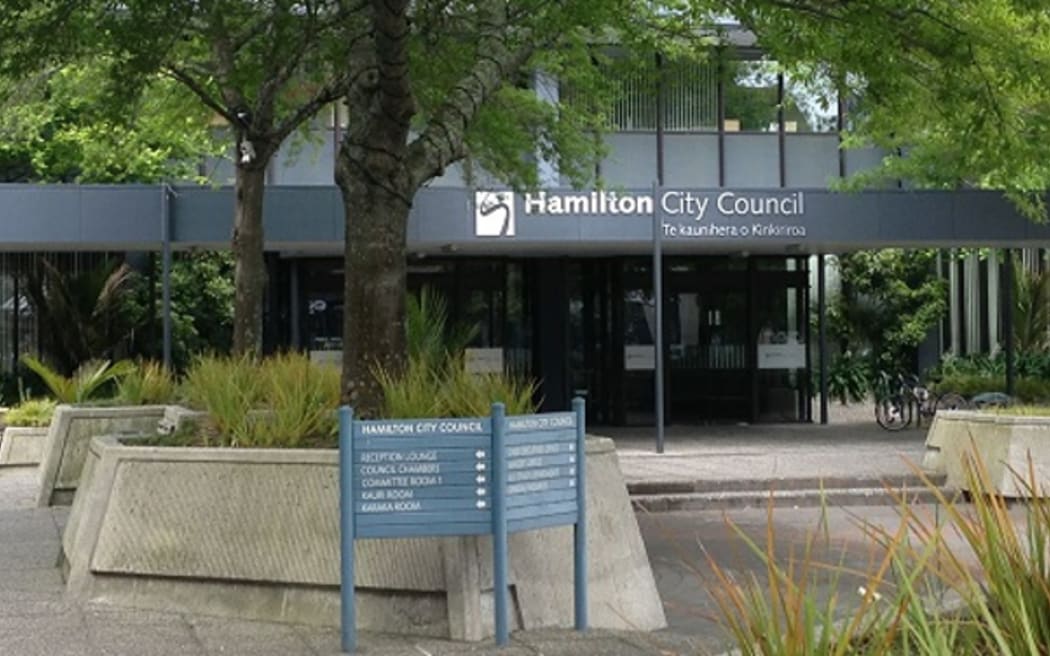
Hamilton City Council’s endorsement of the bill review makes it the fourth Council in New Zealand to show its support Photo: Hamilton City Council
A number of councils are proposing massive double-digit rate rises as part of their long-term plan discussions.
Mayors are warning that residents across the country are likely to face the same pain, with the alternative being significant cuts to essential services.
They are calling on the new government to start fixing a "broken" funding model for councils.
Hamilton City Council has proposed a 25.5 percent rate hike for the 2024-2025 financial year, as part of its draft long-term plan.
Mayor Paula Southgate said the increase, which the council estimates is an extra $722 a year for the median ratepayer, would be tough for many people.
“We know that New Zealand is going through a cost-of-living crisis at the moment, so we know they are already hurting But I would think most mayors would agree we don’t want to run our city or our place backwards into the ground.”
Southgate said the council was grappling with rising interest rates, inflation, and looming water infrastructure costs, like many councils across the country.

Photo: 123rf
She said the cupboard of council assets was almost empty and councillors decided against selling the Hamilton Airport shares they still own, leaving rates and debt as the only options to fund services.
“To grow as fast as we are growing, to provide water services, to provide roads, to build the affordable housing that we need, we need the government to fix some of the broken funding models.”
Lower Hutt City Council is proposing a 16.5 percent rate increase for the next financial year.
Mayor Campbell Barry said there were almost no savings left to make, and the alternative was cuts to services and projects.
He admitted it 16.5 percent would be a “very large” increase for residents.
“We know that the way our rating system is done, it can have a really big impact on people on fixed incomes, on retirees.”
Both councils will be consulting with the public on these rating proposals, with final decisions to be made next year.
Barry said a pressure hanging over councils was water infrastructure investment which “blew all other costs out of the park”.
He said more than $1.4 billion was needed for water infrastructure renewals and upgrades in Lower Hutt over the next 10 years.
If the liability for assets remains under council control it would take the council close to its debt cap and cause rates to spike more sharply between 15-20 per cent over successive years.
Local Government NZ president Sam Broughton expected many other councils to present double-digit rate rises in the coming weeks and months including his own - Selwyn District Council.
Six to seven percent increases, once considered high, are now considered low.
“I haven’t seen the need for rates rises of this level since I’ve been elected since 2010,” Mr Broughton said. “People’s memories will go back before that but in my time as an elected member for Selwyn and now serving for Local Government New Zealand, the pressures are very acute.”
He wanted to see more funding tools for councils available soon, including fuel taxes, and congestion charges and to see details on city and regional deals with central government that National promised in the election.
Prime Minister Christopher Luxon told a press conference on Friday the intention was to get specific about each region’s infrastructure needs.
“That means that we actually have to enter into different arrangements whether it be between how we agree who will fund it between central and local government. Then we lock up a 10-year programme of infrastructure that actually will make a difference to people’s daily lives and we invest consistently in that over a 10-year period.”
National has said it favoured a council-controlled organisation model for ownership of water assets.
Luxon said Local Government Minister Simeon Brown was embarking on a series of meetings with mayors about city and regional deals, starting with Auckland’s Wayne Brown last Friday.
Councils, and crucially ratepayers, may be concerned this won't ease their financial burdens quickly enough.

